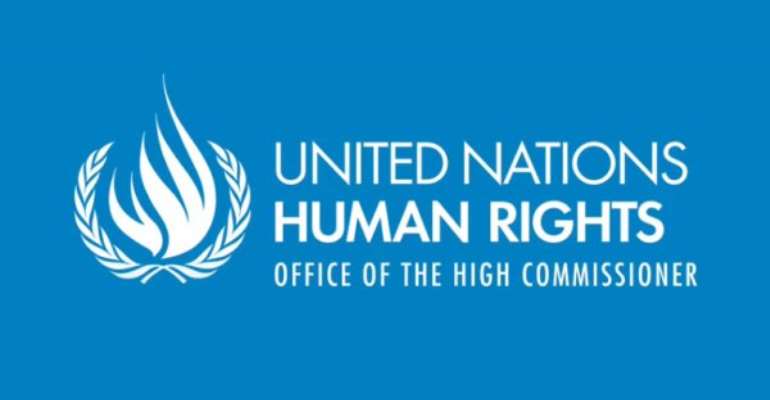Ghana's criminal justice and mental health practices need critical attention to be more humane

GENEVA, Switzerland, November 15, 2013/African Press Organization (APO)/ -- The United Nations Special Rapporteur on torture, Juan E. Méndez, today expressed deep concern about the situation of overcrowding in prisons in Ghana. “The overcrowding rate in some places that I visited is easily between 200 to 500%,” he warned at the end of his first official visit* to Ghana.
“Overcrowding gives rise to other human rights violations such as poor quality and quantity of food, poor hygiene, lack of adequate sleeping accommodation, insufficient air ventilation, a high risk of contamination of diseases, as well as very limited access to medical treatment, recreational activities or work opportunities,” Mr. Méndez said.
“These conditions constitute in themselves a form of cruel, inhuman and degrading treatment,” stressed the independent expert charged by the UN Human Rights Council to monitor a report on the use torture and other cruel, inhuman or degrading treatment or punishment in the world.
The UN expert came across and documented a clear case of caning used as a disciplinary measure against several youth at the Senior Correctional Centre in Accra, the only facility dedicated to juveniles. “I have urged the authorities to conduct an immediate independent and impartial inquiry to establish accountability for this serious act of torture against children,” he said.
“The Government must ratify and implement the Optional Protocol to the Convention Against Torture as a matter of national urgency. Among other things, this will allow a national system of regular prison monitoring by independent experts,” the rights expert stressed.
Mr. Méndez learned that family visits from children under 18 years old are not allowed in the Ghanaian prisons. “Denial of visits by children constitutes cruel, inhuman and degrading treatment not only of the inmates but of the children as well,” he cautioned.
“The Government should reconsider this issue, which is not resource dependent and could go a long way to help the mental state of inmates, in particular of female prisoners with small children,” the independent expert noted.
“In all places visited,” the Special Rapporteur said, “an extremely poor standard of equipment, absence of qualified doctors, an apparent lack of medicine and limited medical screening.” He also received numerous complaints regarding the quantity and quality of the food provided by the prison authorities.
The human rights expert pointed out that family visits are an issue of survival in detention facilities throughout Ghana. “Inmates told me they are dependent on their families to bring them medicines,” he said. “If transferred to a prison far from the family inmates may not receive additional food or medicine.”
Visiting the Psychiatric Hospitals in Accra and Ankaful, Mr. Méndez noted the lack of resources, the insufficient training and limited medication. “I am particularly worried about the application of electro-shock therapy as practiced at the Psychiatric Hospital in Accra,” said the independent expert. “It is administered without adequate anesthetics, not as a last resort, nor with free and informed consent.”
During his eight-day mission, the Special Rapporteur also visited two prayer camps north of Cape Coast. “I saw patients chained to the floor or walls of their cells or chained or tied to trees for prolonged periods of time,” said the expert. The practice of shackling is alleged to be due to the risk of escape or the aggressive behavior of some patients. “Many of the patients say they have been shackled for extensive periods of time, from a number of months to several years.”
The rights expert, who visited Ghana at the invitation of the Government, met with relevant authorities, the judiciary, national human rights institutions, civil society, international and regional organisations, victims and their families.
The Special Rapporteur will present a country report with his observations and recommendations to be presented at the next session of the Human Rights Council in March 2014.
(*) Check the long end-of-mission statement: http://www.ohchr.org/EN/NewsEvents/Pages/DisplayNews.aspx?NewsID=13990&LangID=E
